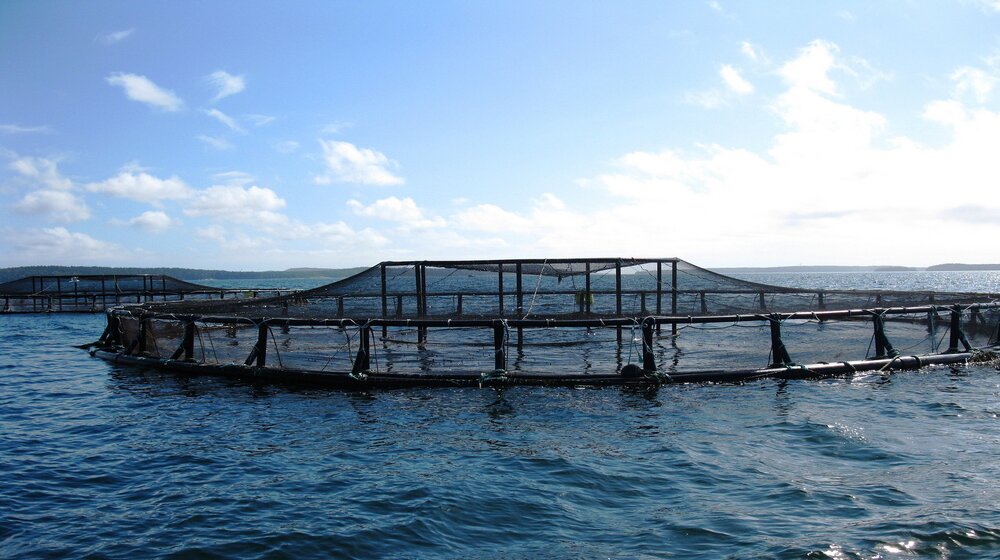The ties between Pakistan and Hungary have further strengthened with the formation of AquaHatch International (Pvt.) Ltd, a joint venture company of both countries, which has a foreign and local investment of $14 million to develop a freshwater ecosystem in Pakistan.
Speaking as the chief guest at the event held recently, Minister of State and Chairman Board of Investment (BoI), Muhammad Azfar Ahsan, said that he was confident that the joint venture between the two countries would flourish soon and provide employment opportunities.
“Pakistan offers its investors a strong and large consumer market with an ever-expanding middle class. The country’s strategic location at the crossroads of South Asia, Central Asia, and West Asia and proximity to the Gulf countries, makes Pakistan a promising regional hub and an important market for trade and investment,” he said.
According to the minister, Pakistan received a foreign direct investment worth $42.5 million in 2020 and $21.2 million in 2021 from Hungary.
“We are in the process of signing a bilateral investment treaty with Hungary and the first round of negotiations has been held in Islamabad,” he added.
The minister also highlighted the important role of the BOI, which acts as an interface between international and local investors and public and private sectors.
The business partners of AquaHatch include VitaFort Agro Asia, a Hungarian Company which has developed dozens of such hatcheries in Laos, Cambodia, Vietnam, and Thailand. The local partners include Jaffer Agro Services (Pvt.) Ltd., which has vast experience in supplying agricultural service, equipment, and products to farmers across the country, Garibsons (Pvt.) Ltd., which is one of Pakistan’s top rice and maize export companies, and Deep Blue Seafoods (Pvt.) Ltd., which has 22 years of fisheries export and aquacultural development experience. Vita Fort Agro Asia is the only foreign firm investing in this project, along with the Pakistani investors.
Freshwater ecosystem
It is important to develop the freshwater ecosystem in Pakistan because currently, the country’s freshwater ecosystem is home to about 200 species of fish, out of which only 30 are considered commercially viable due to huge local demand. It is imperative to bear in mind that owing to overfishing and over-harvesting, the fisheries’ resources have depleted drastically. To meet the local demand for protein from fish, the freshwater ecosystem needs to be developed.
Aquaculture is one way to reduce the pressure on freshwater bodies and to meet the local fish demand. It emerged as an industry in Pakistan in the 1980s, when its contribution to overall national fish production became noticeable. Currently, fish production through aquaculture in Pakistan has low quality and does not cater to the local and international demand potential, especially the middle-eastern and European markets.
Speaking at the occasion, CEO AquaHatch, Muhammad Faisal Iftikhar Ali, said, ‘The existing hatcheries are unable to fulfill the nation’s requirement. So far, only two million seeds could be produced locally, as for the rest, there is a heavy reliance on imported seeds which have many issues. To cater to the demands of fish seeds, AquaHatch International was set up. There is immense potential in Pakistan’s fishing industry. For example, this industry is really big in our regional neighbors like Vietnam. Right now, we are importing a lot of fish and other seafood products, but if our industry grows we will not rely on imports.”
“Fish offers a good alternative to poultry products as well. I think there is great potential in this field and we will be successful in introducing this side of the industry here,” he added.
In the initial phase, AquaHatch aims at setting up a pilot of producing 10 million seeds initially and supplying them to the local fish farms. The project has already procured 100 acres of land where the operations will be scaled-up to around 50 million seeds in the future.
The company’s headquarter is located along the prime potential hatchery belt in Sultanabad in district Thatta, Sindh. The location has a rich ecological significance as there are several large and small natural water bodies including, Manchar Lake, Keenjhar Lake, Kalri Lake, Haleji Lake, Chotiari Reservoir, and Nara Canal among others.
As the River Indus and its tributaries are the sources of livelihood for communities living around these water bodies, they are entirely dependent on fisheries resources. The whole idea of setting up a hatchery in the area is to harness the local skill potential and provide alternative livelihoods, which will also divert the pressure on the local aquatic bodies and will enable the aquatic species and fisheries to sustain their population and prevent overharvesting and overfishing.





















